Bachelor’s Photography Degree Online
BFA in Digital Photography
Program Overview
The online Bachelor of Fine Arts (BFA) in Digital Photography program prepares new and current professionals in photography for their careers as professional creatives. This BFA program is designed to produce graduates with the skills and attributes for tomorrow’s challenges: resourceful, adaptive critical thinkers who are prepared to excel in a professional environment, and whose work is based on effective research, problem-solving, and technical know-how.
The Bachelor of Fine Arts (BFA) in Digital Photography program is a 120-credit program completed in 10 semesters (15 weeks per semester) by a student on a full-time schedule (12 credit hours per semester). The program is suitable for both aspiring high school graduates and adult learners looking to advance their skills or earn a degree.
Summer Enrollment: Join our June 2 midterm or apply for Fall classes starting August 25
Live Event:
Open House
Wednesday, Feb 12th, 4pm PT/7pm ET
Register Now!
 Duration: 3-4 years or less
Duration: 3-4 years or less Tuition: $300 per credit
Tuition: $300 per credit Next Start:
June 2
Next Start:
June 2
 Register By:
May 23
Register By:
May 23
"During the BFA program, students enhance their artistic point of view while expanding their photographic experience with an emphasis upon strengthening their own creative voice."

Felicia Kieselhorst
Department Head of Digital Photography, Photo Lighting and Lightroom Instructor
Bachelor's Degree in Photography Curriculum
The Bachelor's Degree in Digital Photography is a 120-credit online program completed in 3.3 years or less. Credit transfer and part-time schedules available.
First Semester
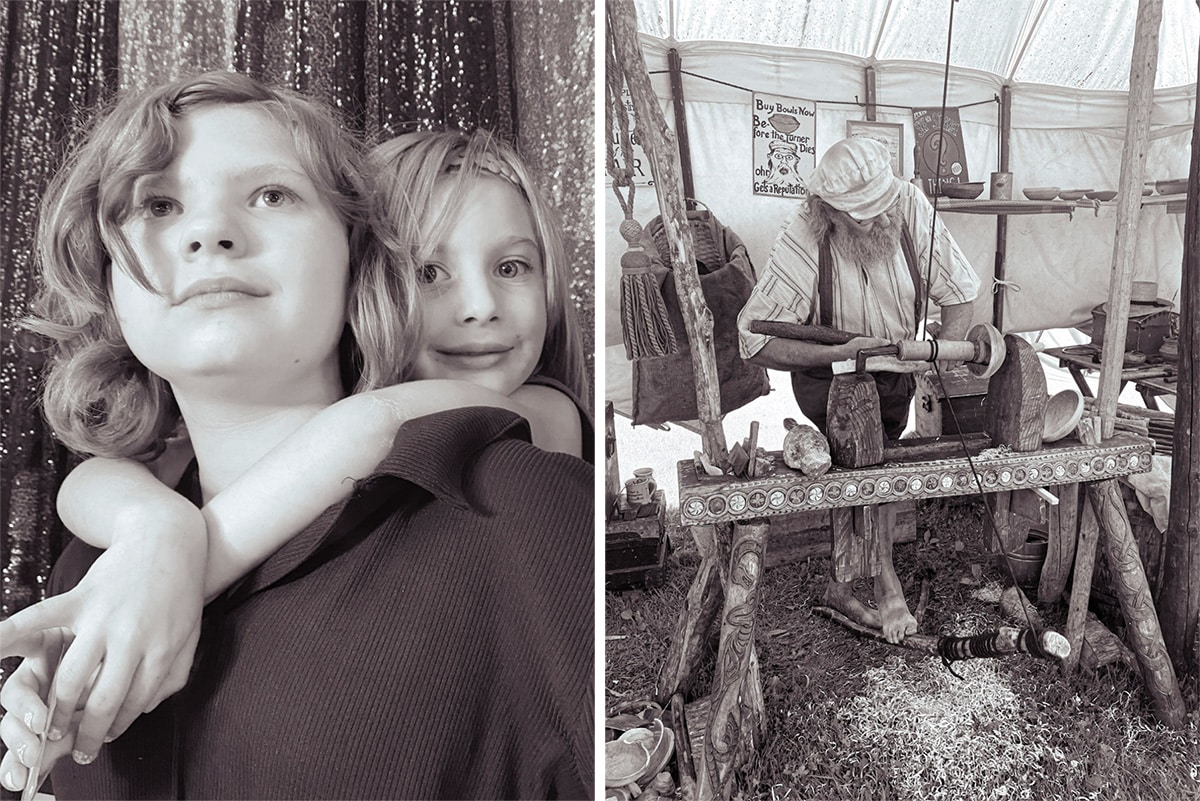
DES 151: Digital Photography I - 3 Credits
In this course, you'll build a foundation in fundamental photography techniques. You will gain control over your camera's manual settings, learning how to balance the elements in the Exposure Triangle (ISO, Shutter Speed, and Aperture/F-Stop. You will discover how to set White Balance appropriately, create depth of field, and capture motion. We will explore composition concepts to help you make your photographs more interesting and effective and equip you for the types of adjustments photographers make to adjust to different lighting conditions. To give you experience in some important genres, you will gain practical experience in shooting different kinds of portrait photographs and sports/motion photographs..
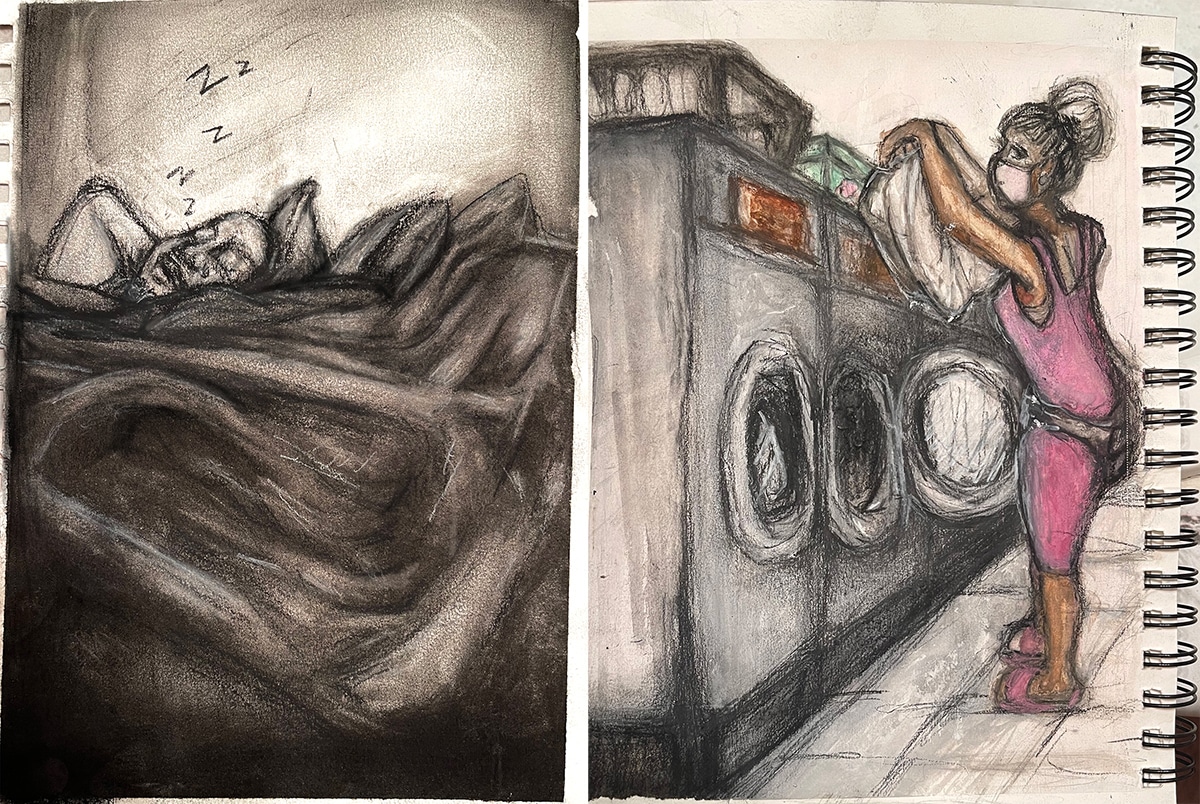
DES 111: Drawing I - 3 Credits
Many people are afraid to draw, but the truth is that drawing is not as hard as it seems. If you can relax, get your mind around the task, and begin to understand what you see, you can draw. In this online drawing course, you'll learn how to analyze what you see in the world around you and communicate it on paper. Guided by a professional artist, you will explore the critical concepts of line, mass, form, perspective, value, and composition, building a solid foundation for all your art and design work.
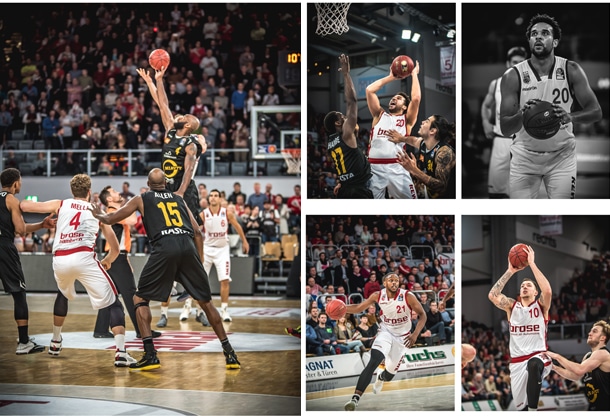
PHO 205: Lightroom - 3 Credits
Have you ever spent more time working on a photo shoot at your desk than you did taking the pictures? If so, consider managing, developing, printing, and presenting your images efficiently with Adobe Lightroom Classic. In this online Lightroom course, working with a photography pro, you'll learn how to import and catalog your images with ease, and use basic and advanced development and retouching tools to create stellar shots, taking advantage of advanced production techniques and workflows.

GEN 104: English Composition - 3 Credits
Writing is an essential skill in almost any professional career you can name. In this online english composition course, students learn to become better readers and writers. Your goal is to produce clearer, more active sentences, better structured paragraphs, and more coherent and interesting personal and analytical essays. Throughout the semester, class discussions will use the critique of images and videos on art as a stimulus for writing. Students will develop two polished essays that will be presented for peer critique..
Second Semester
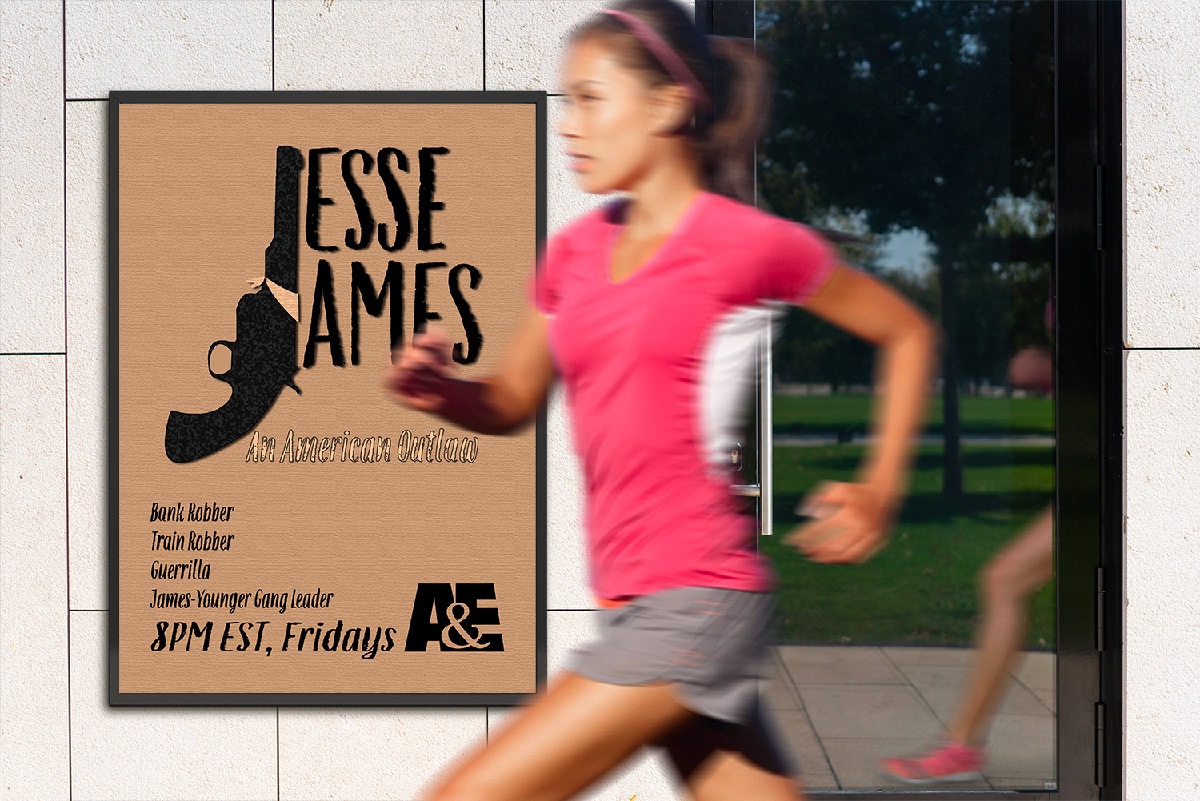
DES 106: Design Foundations - 3 Credits
Color is a fundamental medium for any artist or designer. Typography is what sets designers apart from other artists. Composition, literally the assembly or construction of elements, is the artful arrangement that guides the viewer's eye through an image. In this course, you will analyze everything from Grand Masters to Madison Avenue ads to tubes of toothpaste, and discover how color, type, and composition are combined to create effective and powerful visual communications. Class projects challenge you to build and apply your design skills in application to real-life creative scenarios
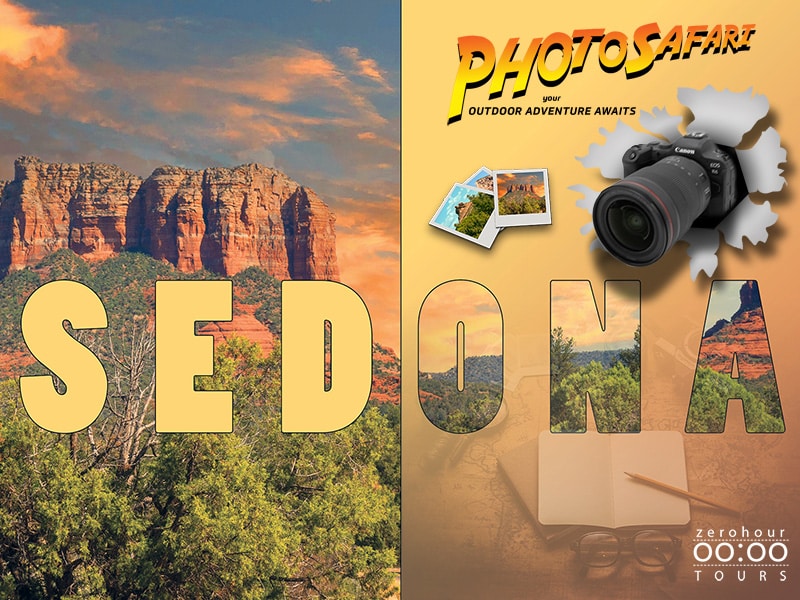
DES 121 Photoshop I - 3 Credits
Adobe Photoshop is the premiere image manipulation tool for print design, Web design, and photography. You can learn to tame this creative powerhouse of a program in this online Photoshop course. Working with a design pro, you’ll learn the best techniques for common Photoshop jobs including selecting and isolating objects, creating image composites, masking and vignetting images, setting typography, and improving images with retouching and effects.
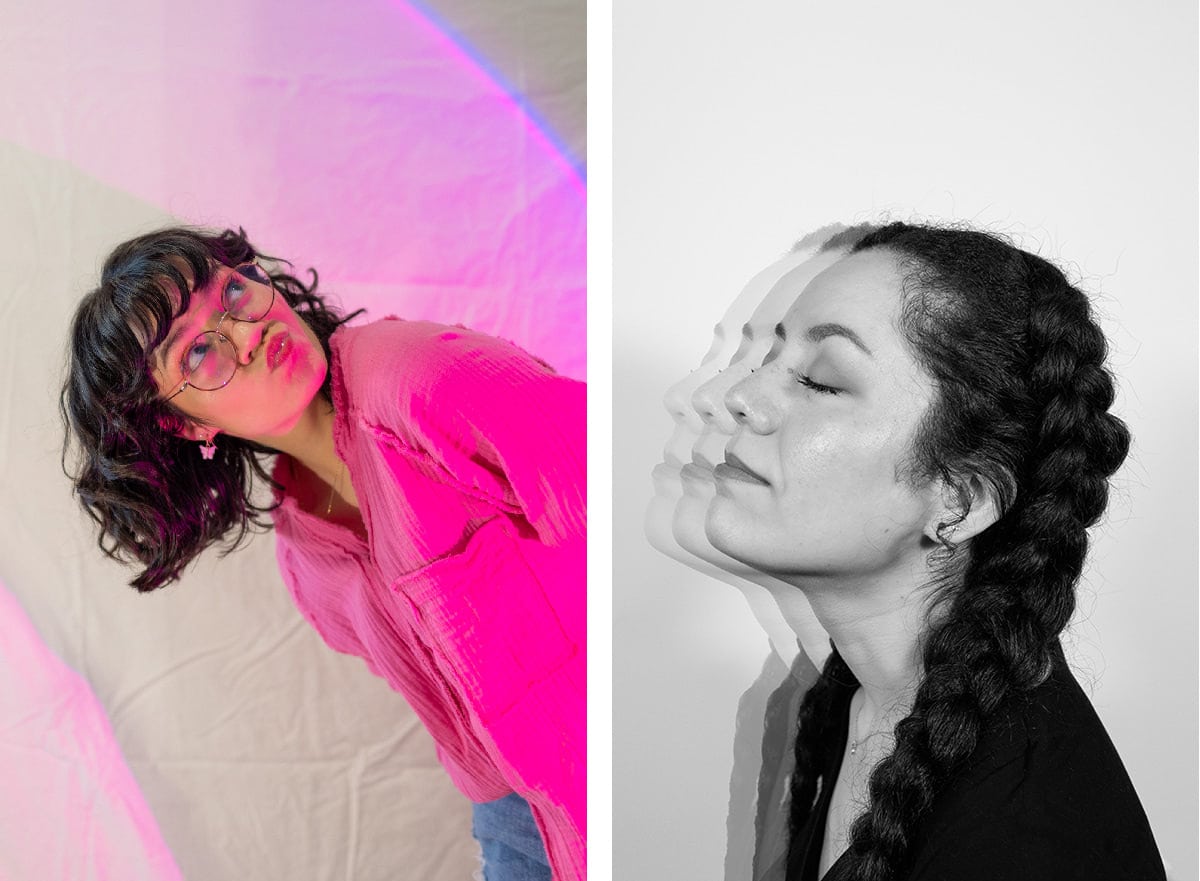
PHO 105: Photo Lighting and Planning - 3 Credits
Planning a photo shoot can be challenging as you struggle to properly prepare while keeping the artistic juices flowing. In this online photography lighting course, you'll focus on the planning and preparation that lead to the successful execution of a photo shoot. You will develop a thorough understanding of different types of lighting, both natural and artificial, and learn how to work within varied shooting conditions. Working with a photography pro, you'll explore ways to effectively stage and style photographs to achieve your desired effect.

GEN 105: Computer Technology - 3 Credits
To succeed in today's digital workplace, it's imperative to understand how computers work. In this online computer technology course, you'll gain a foundation in modern computer systems. The course provides a foundation in the computer concepts that every working professional should know. Lectures explore the history and technical evolution of computing, with a focus on the development of hardware, software, and the Internet have developed. Course assignments challenge students to master concepts and relate their studies to relevant professional scenarios, including data representation, programming, and social issues in computing.
Third Semester
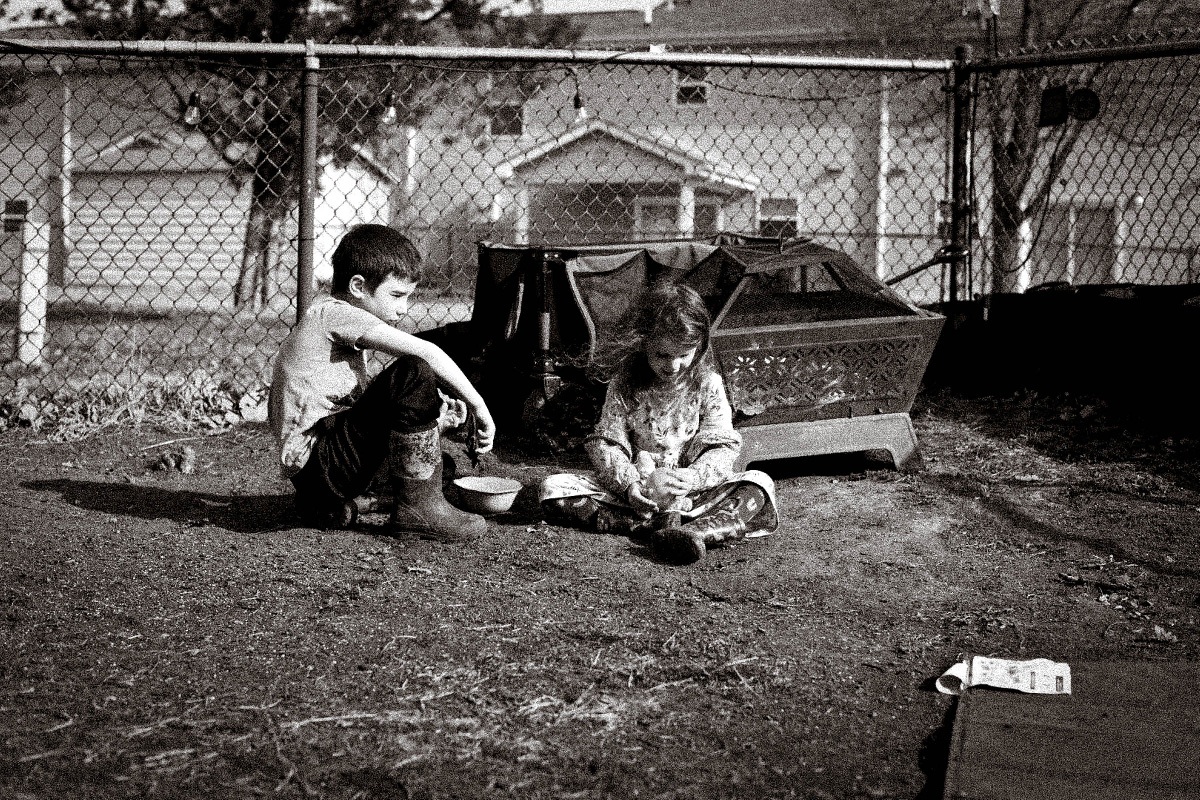
PHO 104: History of Photography - 1.5 Credits
When photography was "invented" in 1839, the scientific breakthrough brought forth a new way of seeing. In this online photography history course, we'll trace the development of photography from its pioneering days in the 19th century to the experimental movements of today. We'll discuss major innovations and photographers in each period, and really put into practice what we're learning. Each exercise will require you to take photos that emulate historical styles, genres, or techniques.

PHO 154: Landscape Photography - 3 Credits
Landscape photography can be fascinating and endlessly inspiring, just like the natural world. In this course, you will explore a wide range of concepts and techniques to help you get more out of your nature photography. Each assignment will challenge you to go out and photograph the natural world, exploring compositional concepts and shooting techniques for different kinds of subjects and environments, ranging from macro and mobile to HDR and panoramic shots. To help you organize, edit, and showcase your work, the course will explore editing techniques using Adobe Lightroom. By the end of the course, you'll have created a stunning portfolio of images celebrating your favorite natural location(s).

PHO 106: Photo Retouching - 1.5 Credits
Nearly every photograph can benefit from retouching, whether it's to correct subtle color problems or make major changes to the subject or background. In this online photo editing course, you'll learn how to turn good photographs into showstoppers. Using Photoshop's tools and filters, you'll learn to make seamless changes, realistically enhancing your images so that no one knows work was done. Photographers and designers will benefit from learning systematic professional routines taught in this course.
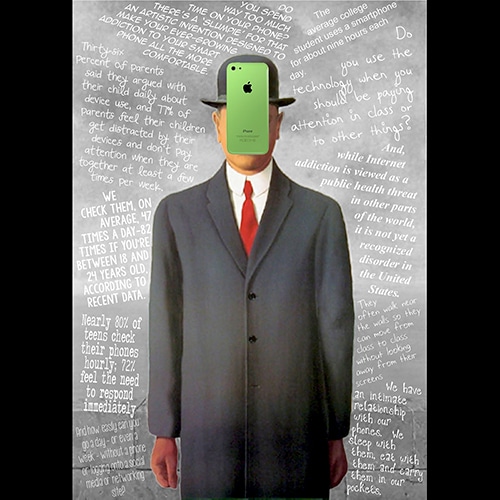
GEN 106: History of Art - 3 Credits
What essentials do artists and designers just need to know? In this online art history course, you'll build a foundation in art and the artists who created it. You'll explore profound themes that have concerned artists for centuries: nature, the human body, society, religion, and politics. Through engaging lectures and projects, you'll learn how to identify the mediums, materials, and techniques artists use and discuss the styles of important artists, art movements, and historical periods from antiquity through the mid-20th century.

GEN 107: General Psychology - 3 Credits
An understanding of human psychology is essential for any designer. In this online psychology course, you'll build a foundation in theories of the mind. The course focuses on the biological and environmental bases for human behavior, including motivation, emotions, states of consciousness, learning, and personality. Students examine classic theories and theorists in psychology and complete research- and reflection-based projects.
Fourth Semester
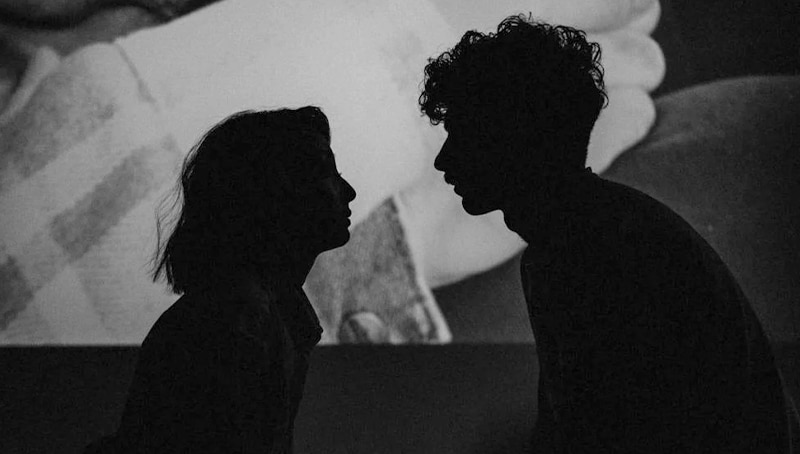
PHO 204: Commercial Photography I - 3 Credits
Event photography is the primary source of business for most professional photographers. Capturing the important moments in a concert, wedding, or sporting event requires planning and a mastery of equipment, lighting, and location. In this course, you'll learn practical skills for managing paid event photography shoots. Working with a professional photographer, you'll learn how to approach projects professionally and deliver the client a high quality product.
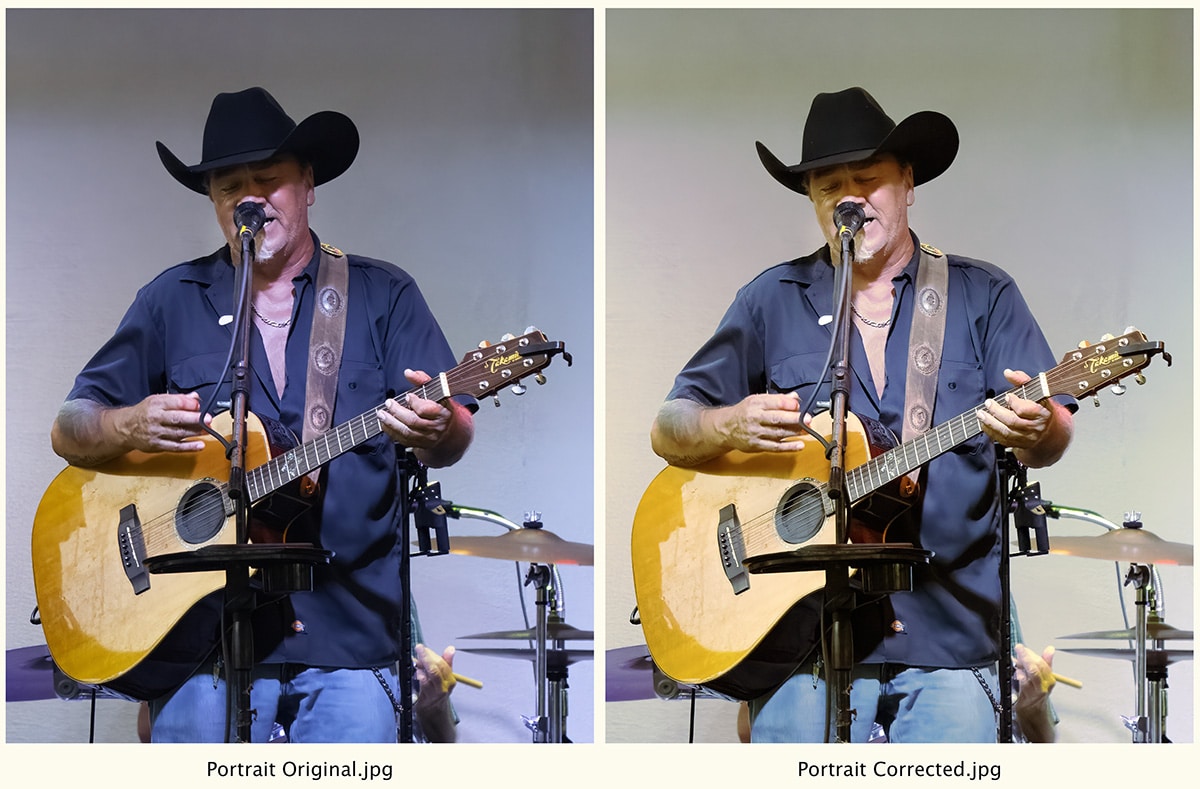
PHO 208: Color Correction - 3 Credits
Do you know how to get the best out of your digital images? As every art director knows, even the best photographs (on the best of days) can be plagued by problems such as color casts, unnatural tones, dull highlights, murky shadows, or low contrast. In this online color correction course, you'll learn systematic techniques for every aspect of Photoshop color management using Photoshop. Working with a Photoshop guru, you'll learn how to identify classic color scenarios and use both comprehensive and quick-and-dirty methods for correcting them.

DES 222: Photoshop II - 3 Credits
How well do you know Adobe Photoshop, the industry-standard imaging app? In this advanced online Photoshop course you'll transcend your current skill set with vector illustration techniques, photo-realistic painting, high-impact typography, and professional editing methods that preserve the editability of your original images. Working with a Photoshop pro, you'll build proficiency with the Pen tool, Adobe Color, Smart Objects and Filters, and more.
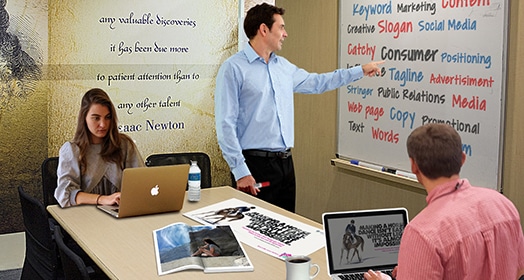
GEN 207: Copywriting - 3 Credits
Every ad designer must grasp the basics of persuasive copywriting. In this online copywriting course, students will study how text and images interact in effective ad campaigns, learning how to write and edit ad copy for print and digital advertising media and turn written ideas into visual expression. Working with a professional writer and editor, you'll hone your copywriting skills on realistic projects.
Fifth Semester

ADV 207: Creative Concept Development - 3 Credits
Where do creative concepts come from? In advertising, illustration, and design, you need to be able generate many ideas for your clients and projects. You can have all the skills in the world, but unless you can develop creative concepts, your products and content will get lost in the sea of what's out there. This online creativity course provides you a training in identifying the needs of each project, brainstorming solutions, challenging your assumptions, and testing/evaluating your ideas until you have a winner.
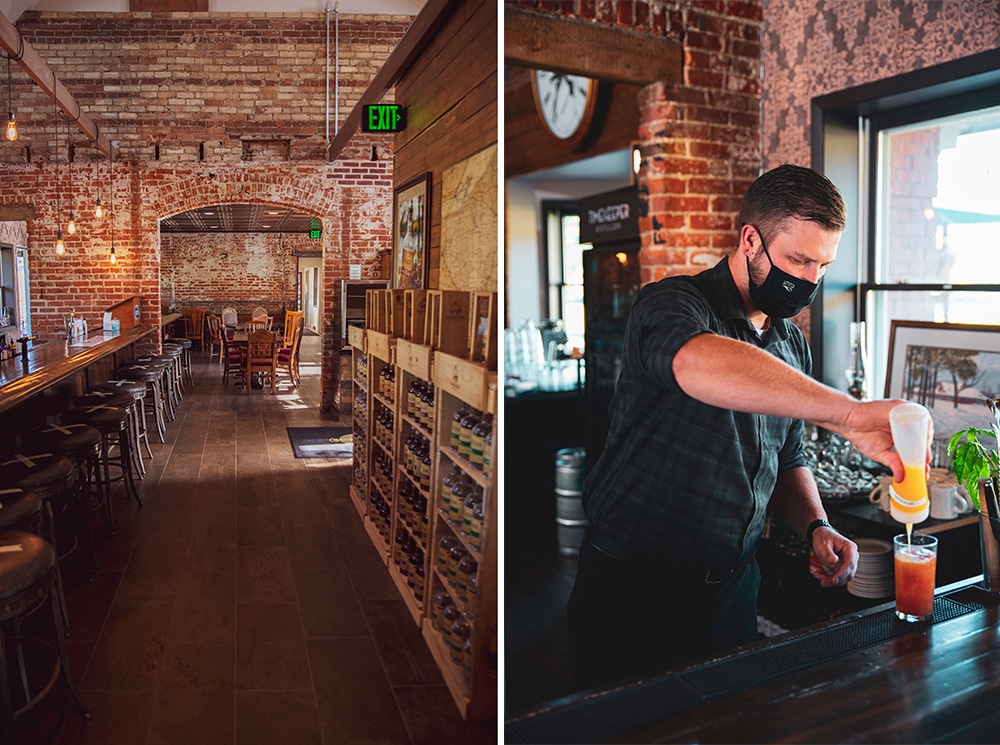
PHO 207: Commercial Photography II - 3 Credits
Are you looking to branch out and make a career as a commercial photographer? This advanced commercial photography course teaches you how to market yourself and gain new clients, shooting commercial subjects like buildings, products and food for e-commerce, advertising, and lifestyle industries. Other exciting areas of focus include portraiture photography and photojournalism.

DIG 201: Digital Video Editing I - 3 Credits
Digital video is an exciting field, once described by FaceBook CEO Mark Zuckerberg as a megatrend. In this online video editing course, you'll learn the art and craft of editing videos using Adobe Premier, or equivalent NLE program. Working with a pro digital artist, you'll learn time-honored concepts in editing, including shot types, story structure, scripting, editing sound, continuity editing, CODECs, adding text and graphics, compressing and expanding time, and storytelling strategies. Through a series of creative projects, you'll learn how to create polished movies for digital and social media applications.

GEN 204: Intro to Marketing - 1.5 Credits
Today's business clients are looking for designers who can apply their creative talents in ways that enhance strategic business goals. In this online introductory Marketing Design course, you'll learn tried-and-true marketing concepts and explore how they affect the design process. You'll gain a solid grasp of the marketing process, understand key terms and concepts that every marketer uses, and pick up smart questions to ask in client meetings.

GEN 206: Creative Business - 1.5 Credits
The course provides essential preparation for finding employment opportunities in your creative industry. You will learn how to define a personal career path, break down the job market, and define their goals, talents, and ideal job. This course explores different ways to brand yourself as a professional creative, discussing tips for resume and portfolio preparation, self-promotion, marketing, client searches, responding to leads, interviewing, and presenting work and/or campaigns.
Sixth Semester
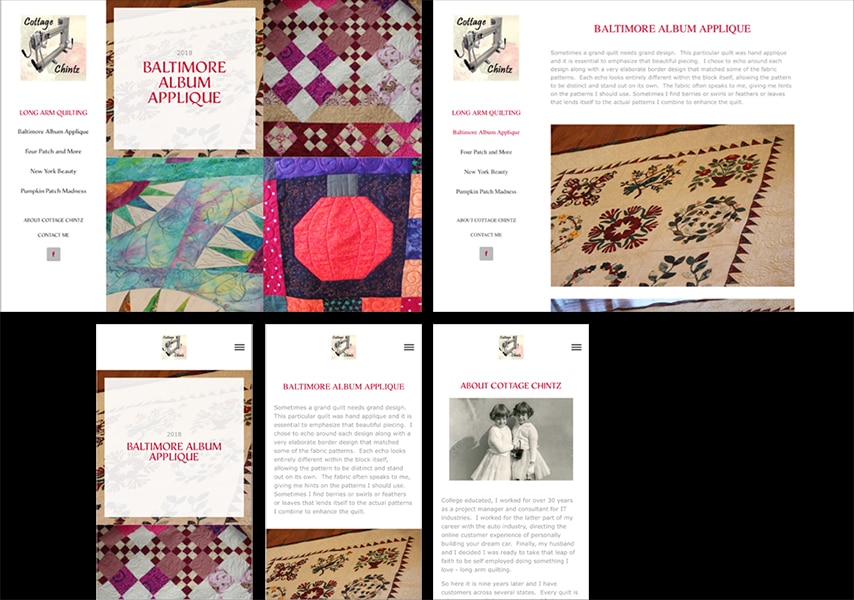
WEB 101: HTML and CSS I - 3 Credits
In order to build a Web site today, you need to know how to code using HTML and CSS. In this online HTML/CSS course, you'll learn just how fun and creative hand coding and designing Web sites can be. Working with a professional Web designer, you'll discover how to create Web pages with HTML and control page design and layout with CSS and get up to speed with current Web design practices including HTML5, semantic coding, CSS Grid, Flexbox, Web fonts, and CSS3 effects. The course will also provide an introduction to techniques used to test website accessibility.
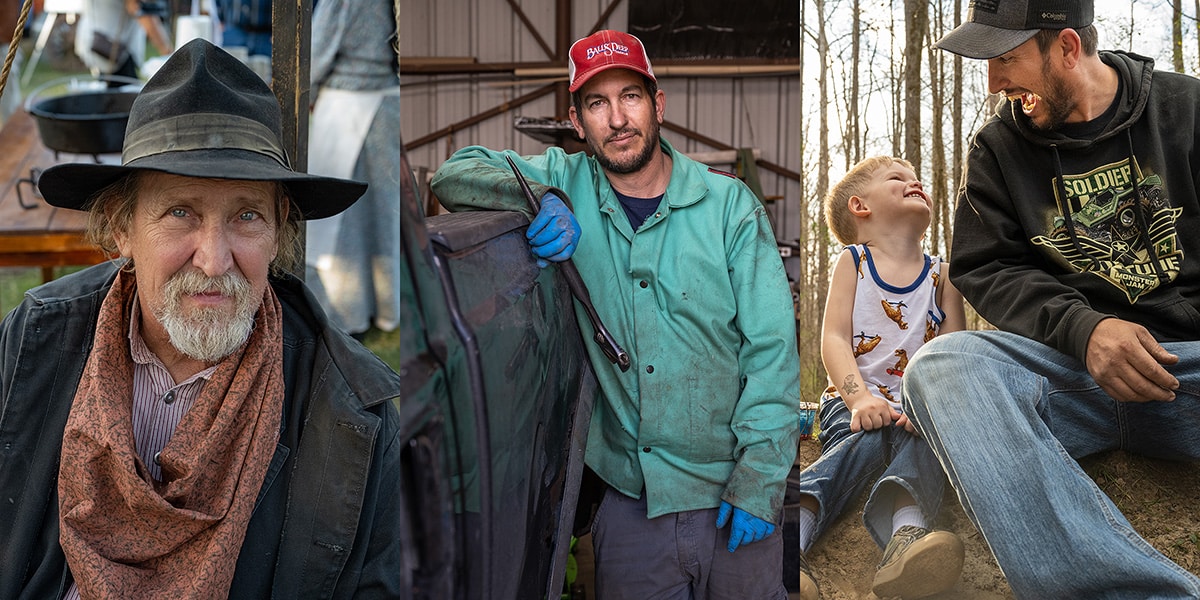
PHO 214: Narrative Photography - 3 Credits
They say a picture is worth a thousand words. Readers and publishers expect photographers to be able to tell stories with images. In this online photojournalism course, you will explore how to utilize an editorial or narrative approach to photography. Throughout the course, you will use conceptualism in conjunction with documentary to build photo essays and other narrative projects. Studying with a respected photojournalist, you'll learn how to research, pitch, shoot, edit, and present a body of work that encompasses unifying themes.
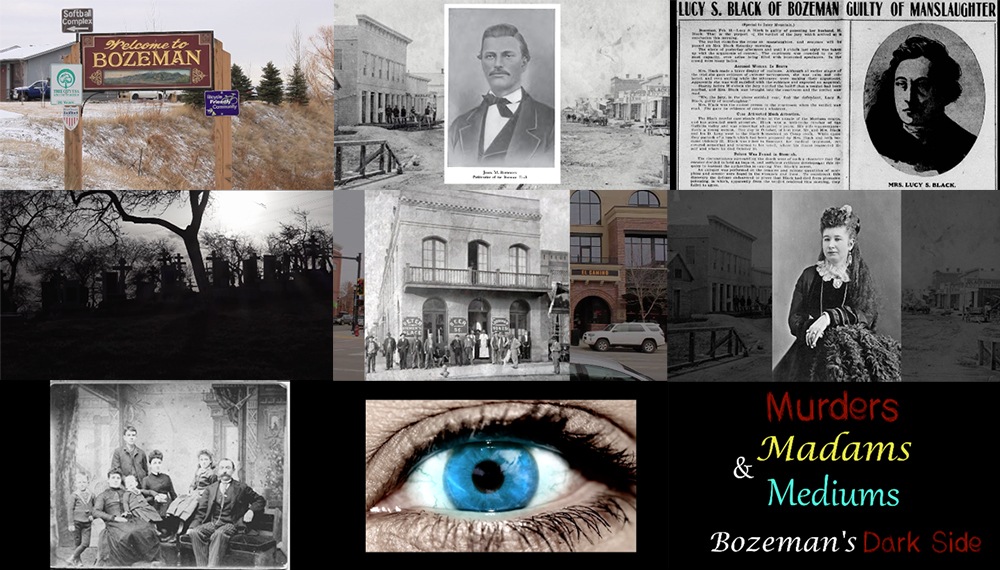
DIG 204: Digital Video Production - 3 Credits
Can you hear Sundance calling? In this online video production course, you'll learn the basics of planning and shooting videos. You'll learn how to control your video camera, execute different kinds of shots, and maintain continuity in your projects. Working with an expert instructor, you'll gain experience in shooting different kinds of videos, focusing on storytelling, production planning, and sound editing, with the ultimate goal of telling stories that move audiences. This course will empower you with the knowledge to tell compelling stories for news, corporate video, and social media.
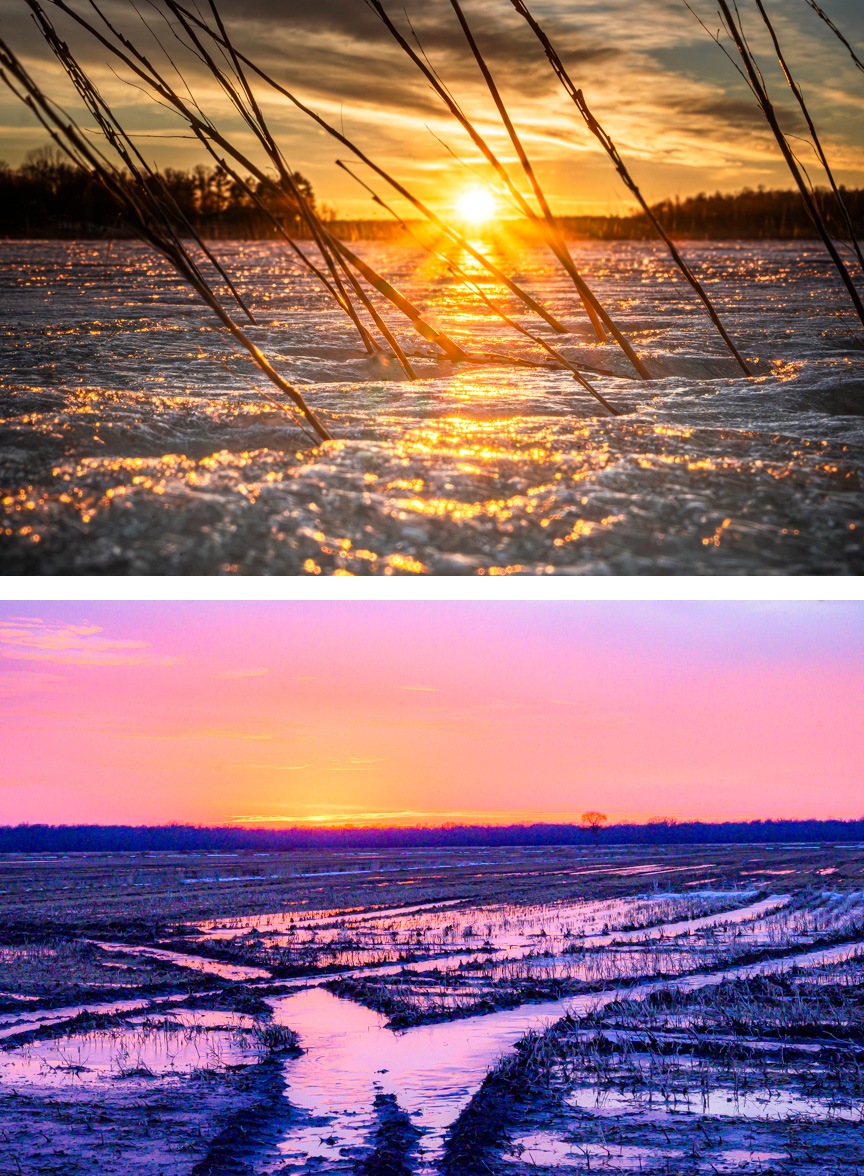
PHO 260: Digital Photography Capstone and Portfolio Review - 3 Credits
The Digital Photography Capstone and Portfolio Review class offers an opportunity to develop a multifaceted portfolio piece and hone your creative work into a polished presentation for future clients and employers.The Digital Photography Capstone Project provides a simulation of an extended photography project. Students will take a photography project from concept to final presentation. Students work closely with the department head, developing a client brief for a project that provides a deep exploration of an area of photography.
Seventh Semester
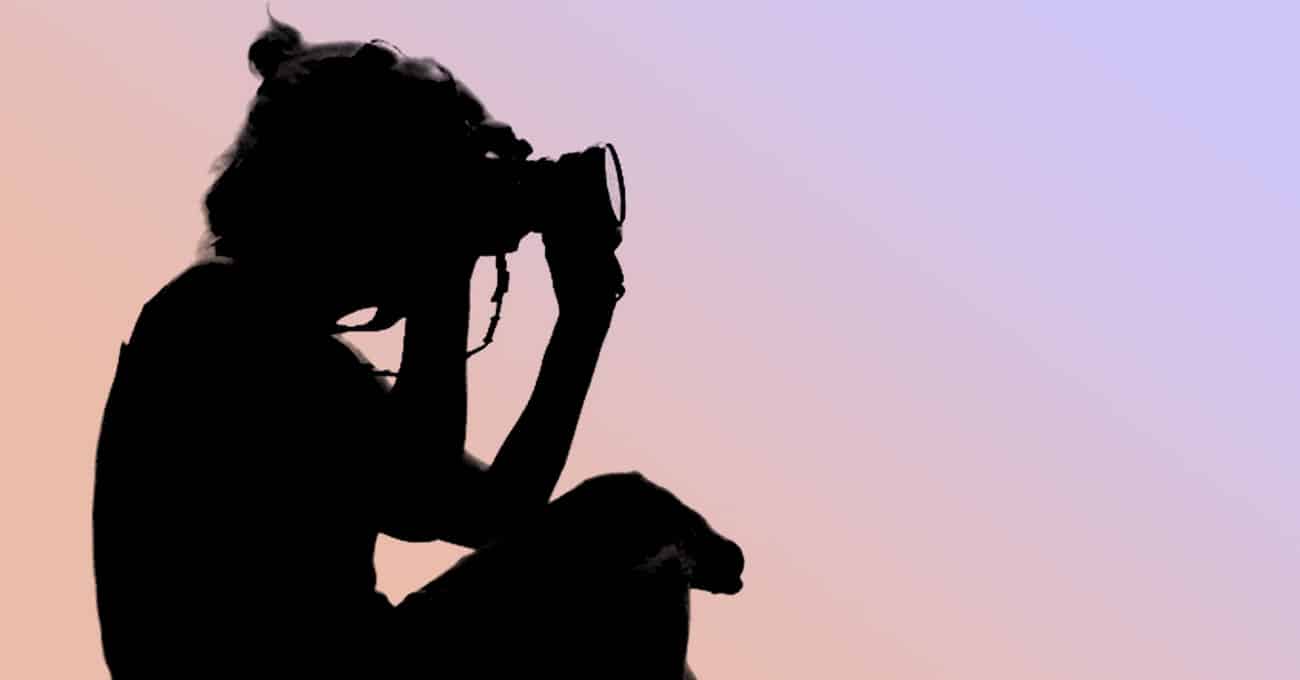
PHO 360: Project Management and Workflow - 3 Credits
What kind of photographer do you want to be? Are you interested in developing Commercial, Documentary/Editorial and/or Fine Art photography? In collaboration with your faculty mentor you will review and analyze your current portfolio and workflow strategies, identify the type of work you want to create, develop your customized academic plan that will serve as a roadmap for the remainder of your Bachelor’s degree program, and expand your depth of experience with photographic project workflow components such as budgeting, estimating, scouting, shooting, processing, file management, and delivering client-based or exhibition ready work.
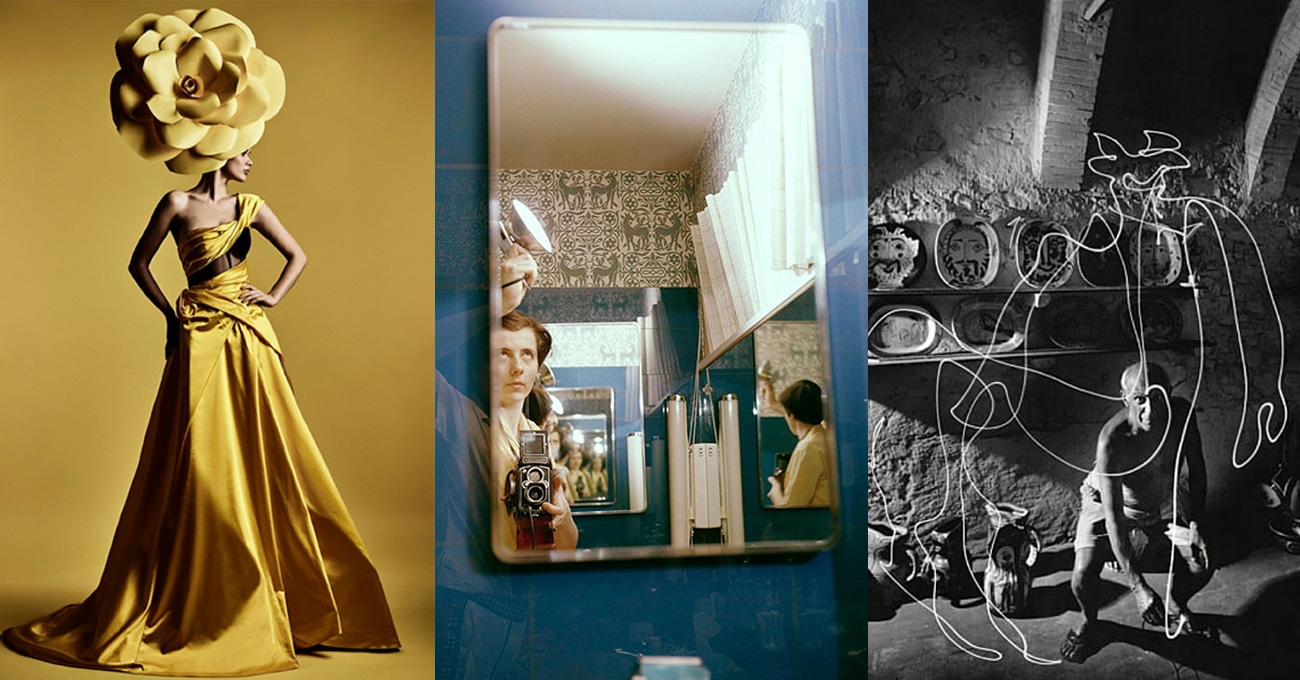
PHO 301: Photographic Genres - 3 Credits
Which genres of photography are you interested in? Which genres would you like to be recognized for? In alignment with your creative and professional goals, this course will allow you to take a deep dive into areas of focus within commercial photography, editorial photography, and fine art photography. Based upon your exploration and research of photographic genres, industry trends, and the work of exceptional photographers, you will create your own images inspired by your expanded view of photography.
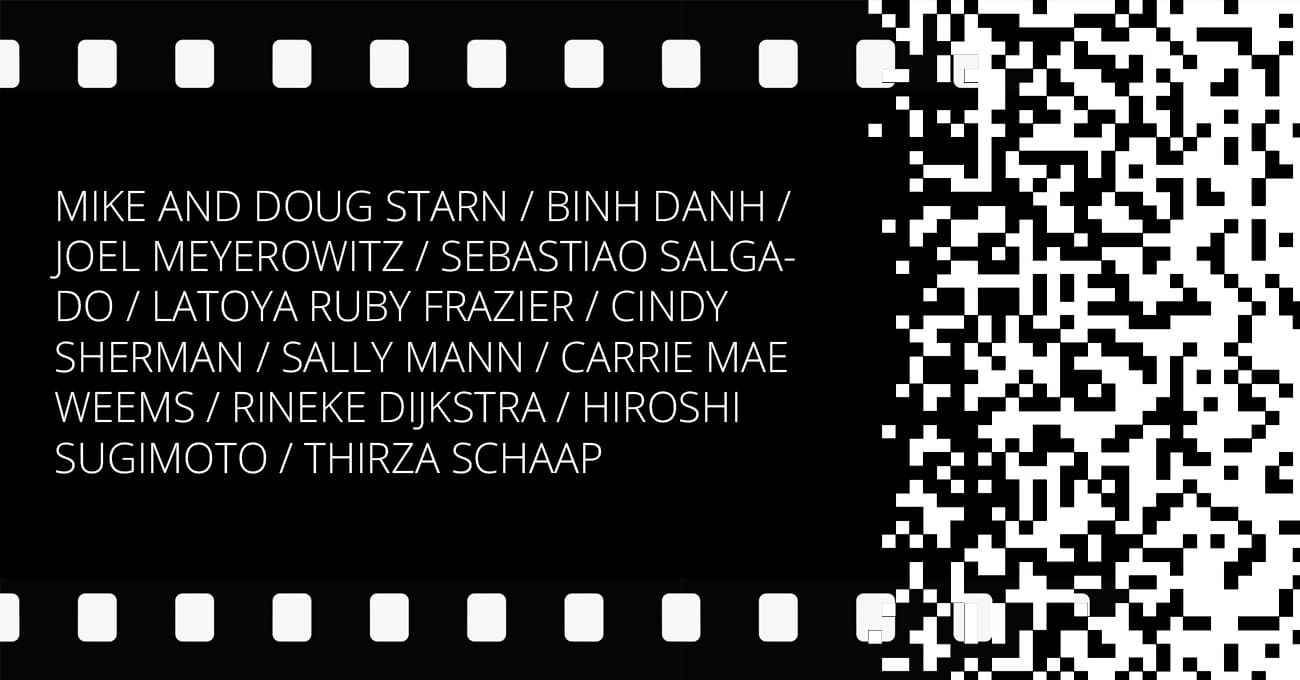
PHO 302: Late 20th Century Photography to Today - 3 Credits
Closely examine and critically analyze photographic work produced from the 1980s to present day. Explore photographic work and artistic styles, concepts, and exhibitions in relation to historical context and the impact of photography on art and culture. Through the development of both written and visual work you will present your research, an expanded view of photography, technology, aesthetics, and artistic concepts.
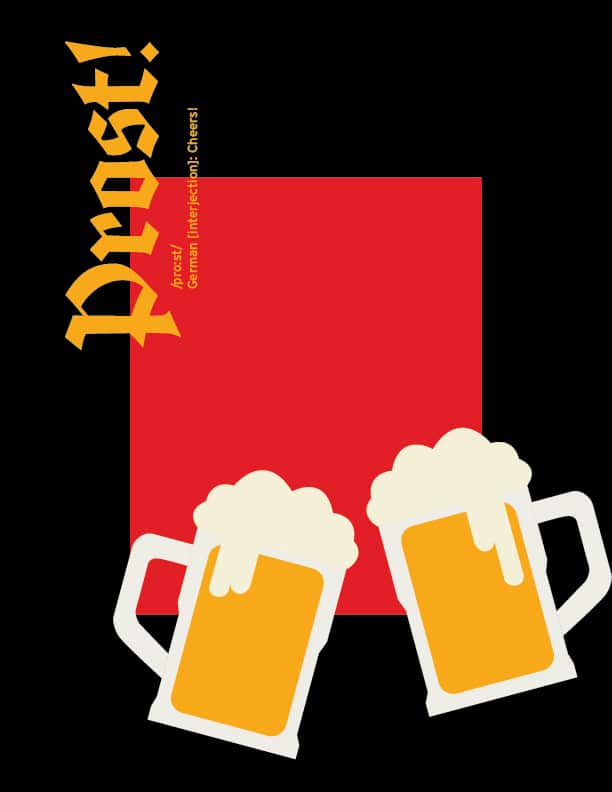
GEN 409: Cultural Anthropology - 3 Credits
As a creative professional, you will communicate ideas to complex and diverse audiences. This course explores multiple theories of cultural anthropology that inform the way we understand identities and societies. Areas of focus include language and communication, economic and political systems, ethnocentrism and culture, kinship and descent, marriage and family, gender and sexuality, race and ethnicity, religion and belief systems, the effects of colonialism and industrialization, and the impact of globalization on culture.
Eighth Semester
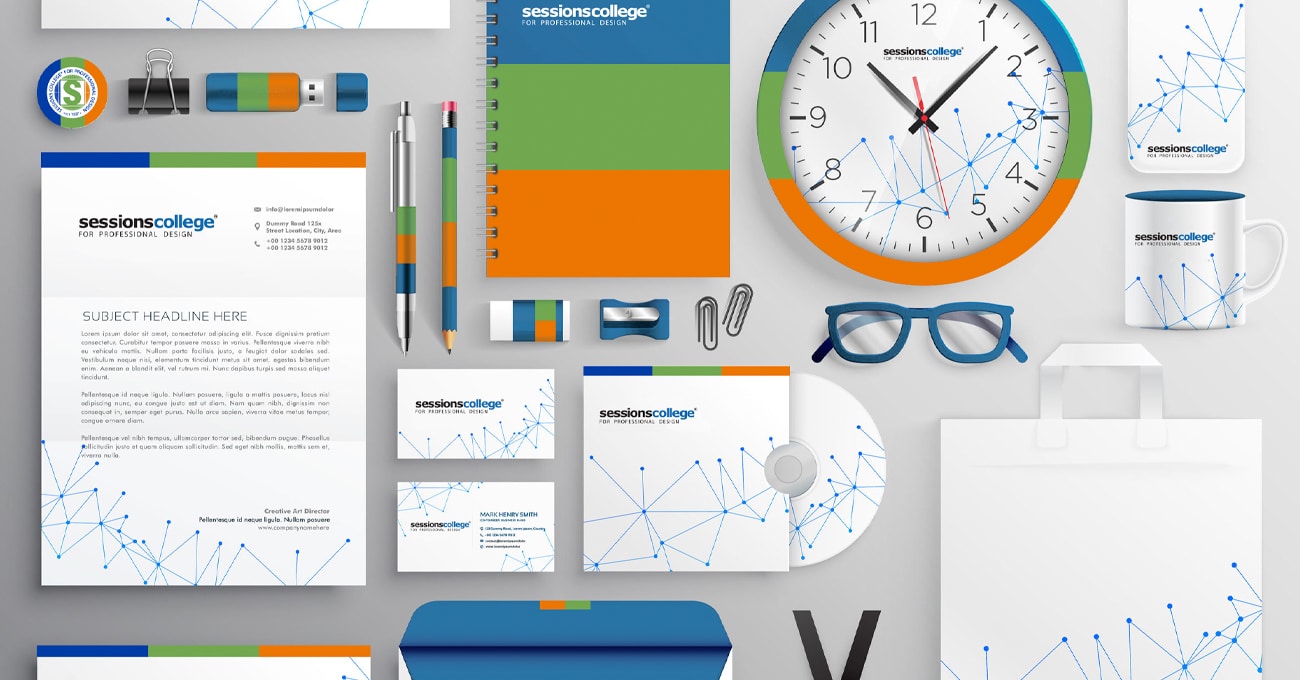
DEG 344: Professional Practices - 3 Credits
During this class you will develop and/or enhance your business forms and collateral materials for your photography, illustration, and design business based upon industry standards and best practices. In preparation for running your own creative services business, you will also create a business plan and marketing plan as you explore an ethical and scalable business philosophy. You will focus on networking with fellow creatives through local industry organizations and/or respected creative work sharing sites and implement your internship outreach plan in preparation for the DEG 410 Internship and Entrepreneurship.
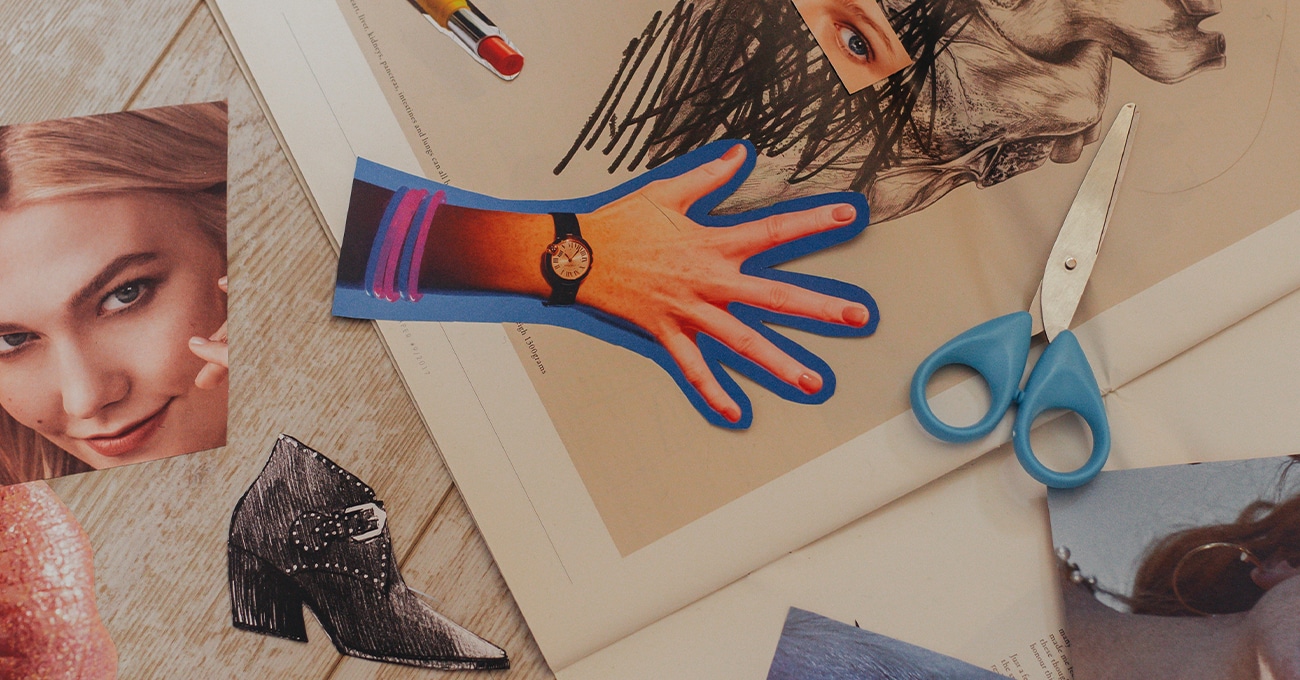
PHO 333: Creative Exploration - 3 Credits
Explore, experiment, and expand your ability to manipulate, fabricate, and conceptualize images through the use of technology, alternative photographic processes, innovative photo setups, mixed media, collage, digital compositing and/or other approaches to creating unique and compelling images.
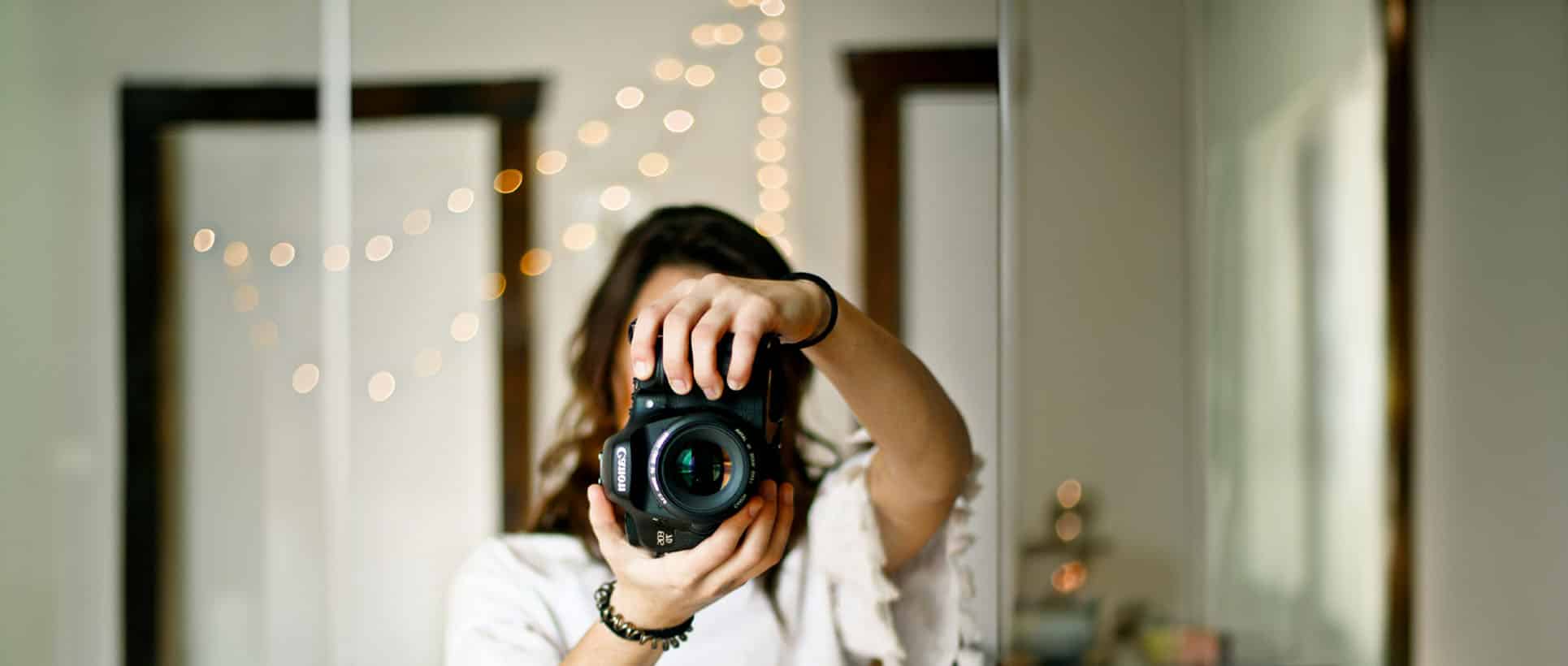
PHO 304: Special Topics - 3 Credits
In collaboration with your instructor, you will complete a multi-faceted project and/or set of projects that support your portfolio goals. In this course, your instructor will serve as your client, and your class grade will be based not only on the quality of your work but also on your ability to meet deadlines, apply the principles of photography, and effectively present your work.

GEN 402: Communication* - 3 Credits
Engage in the process of examining, analyzing, summarizing, and evaluating communication strategies and theories. Students will demonstrate how to apply various communication principles through speech, including the consideration of the communication process, receiver perceptions, and verbal and nonverbal communication, as well as listening. The theory of communication will be explored in regard to engaging small groups, the public, and a variety of organizational contexts. A broad range of communication venues and considerations will be evaluated including interviewing, mass media, the use of new technologies, the influence of relationships, body language, intercultural perspectives and gender, as well as how to address conflict and negotiations.
Ninth Semester

DES 411: Interactive Marketing - 3 Credits
As a designer working today, you'll likely need to develop designs deployed through a wide range of interactive media and/or social media. How will you react when a client wants you to direct their web strategy or coordinate their social media campaigns? In this class, we will research and discuss current interactive marketing strategies and venues. You will then translate your research into the development of practical interactive media projects that can expand the depth of your portfolio. The final presentation should reflect your research and include finalized designs that demonstrate your design expertise and ability to strategically plan the development of interactive graphic design.
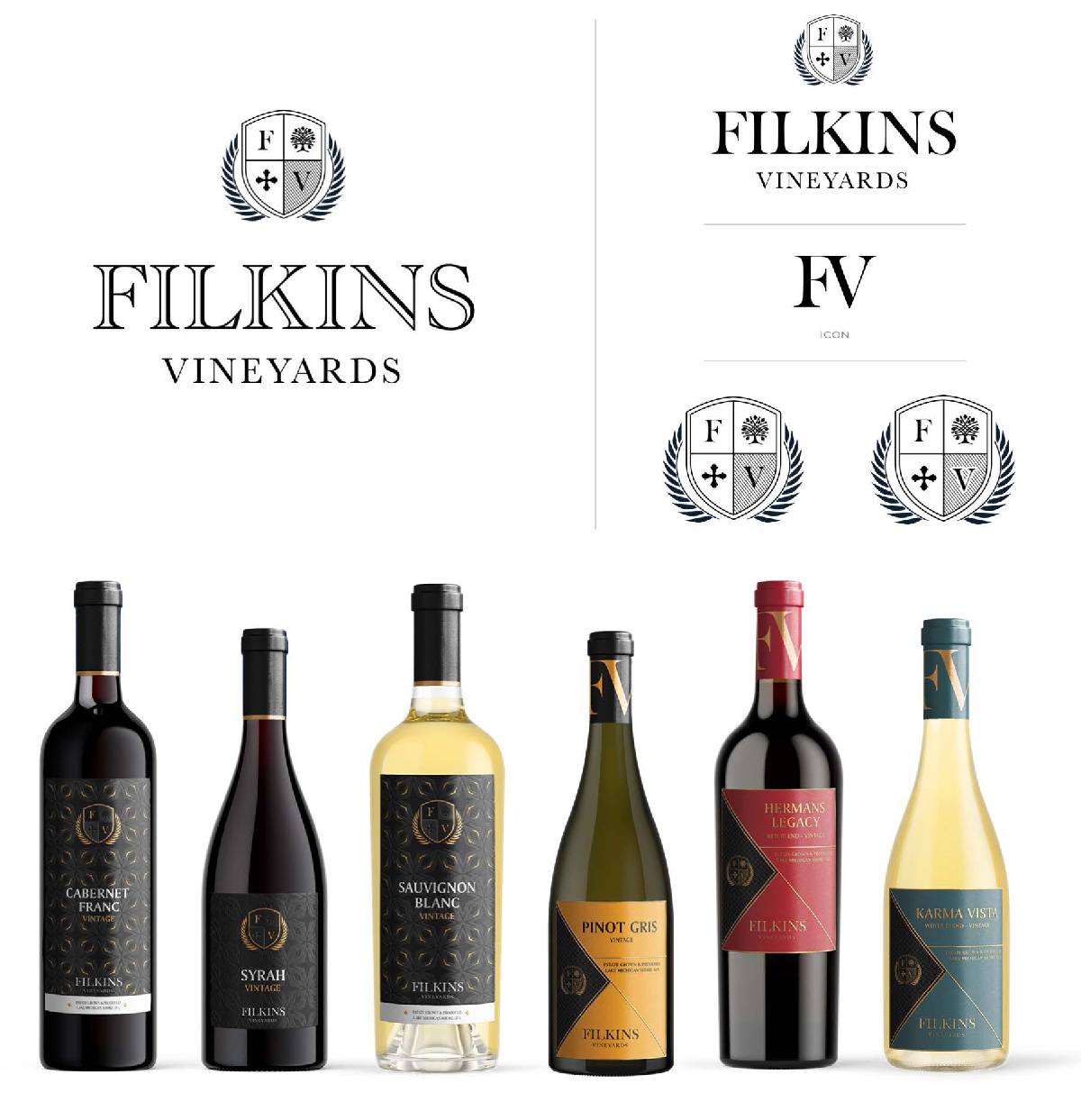
DEG 410: Internship & Entrepreneurship - 3 Credits
To get your foot in the door in the design field, experience matters. In this industry-focused class, you will engage with a professional client or employer in your local area and expand your experience in the field, with the benefit of the insightful support of your instructor. Working for a real client or employer will provide you an opportunity to hone your problem-solving, client communication, and project management skills, creating a business solution(s) that will stand out in your portfolio and on your resume.
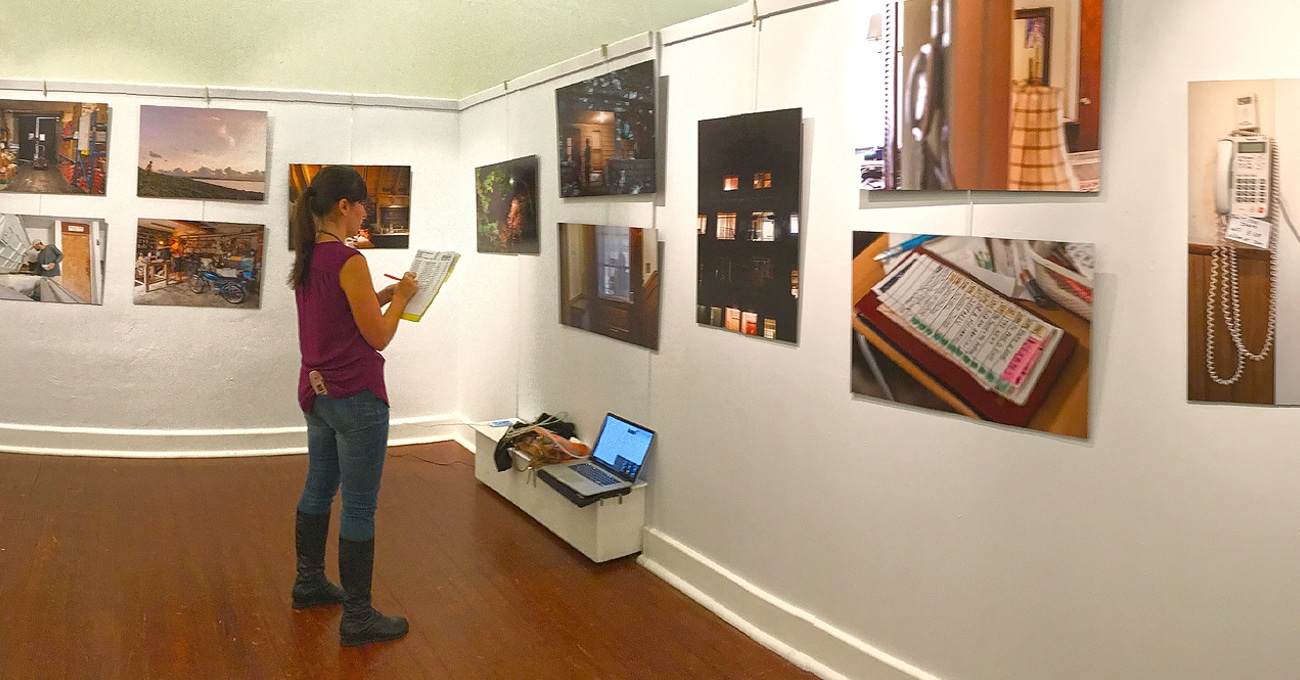
PHO 404: Senior Project - 3 Credits
Follow your creative passion by conceiving, producing, and promoting an innovative collection of images in alignment with your artistic and professional goals. This is your opportunity to focus on creating a unique cohesive series of images informed by research as well as instructor and peer feedback. During this course you will advance your ability to print, promote, and present your photographic work. At the conclusion of the course, you will exhibit your creative work through a website, social media, self-published book, exhibition, or other physical or virtual venue, as well as share it with your instructor and your peers.

GEN 401: Accounting for Creatives - 3 Credits
Any creative who wants to establish a freelance career or succeed in business will benefit from a basic understanding of accounting. This course includes a focus on basic accounting principles and how they can be applied within the context of a small creative business. You will explore and identify how to use Generally Accepted Accounting Principles (GAAP), ledgers and journals, and how to follow and apply accounting strategies and cycles when running a creative focused business. Additionally, this course provides an introduction to balance sheets, financial statements, assets and liabilities, and equity, as well as an exploration of business ethics.
Final Semester
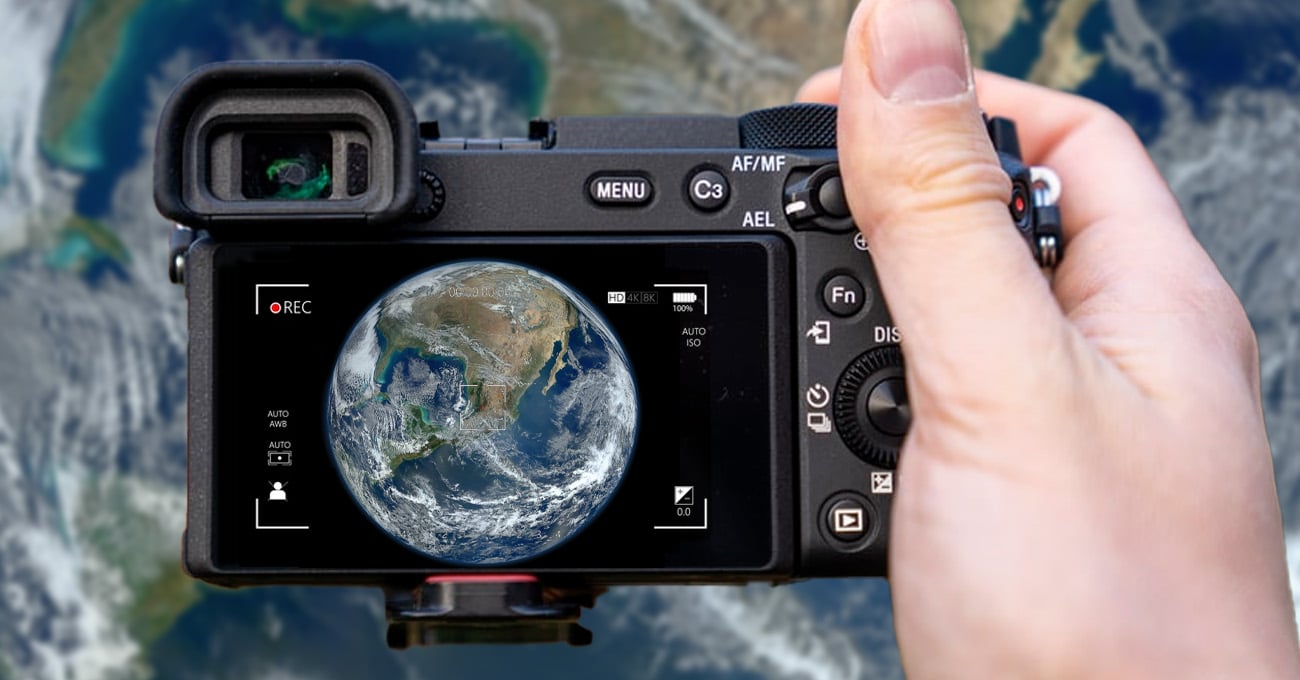
PHO 422: Global View of Photography - 3 Credits
Contemporary photographers must be prepared to produce work that appeals to a global audience. You will research photographers and creative image makers who produce international work. Based upon your findings, you will develop and produce a multi-faceted photographic campaign focused on gaining the attention of an international audience. By considering cultural differences, you will develop the cultural sensitivity required to be a global creative and the skills to effectively research compelling and contemporary imagery for domestic and international audiences.
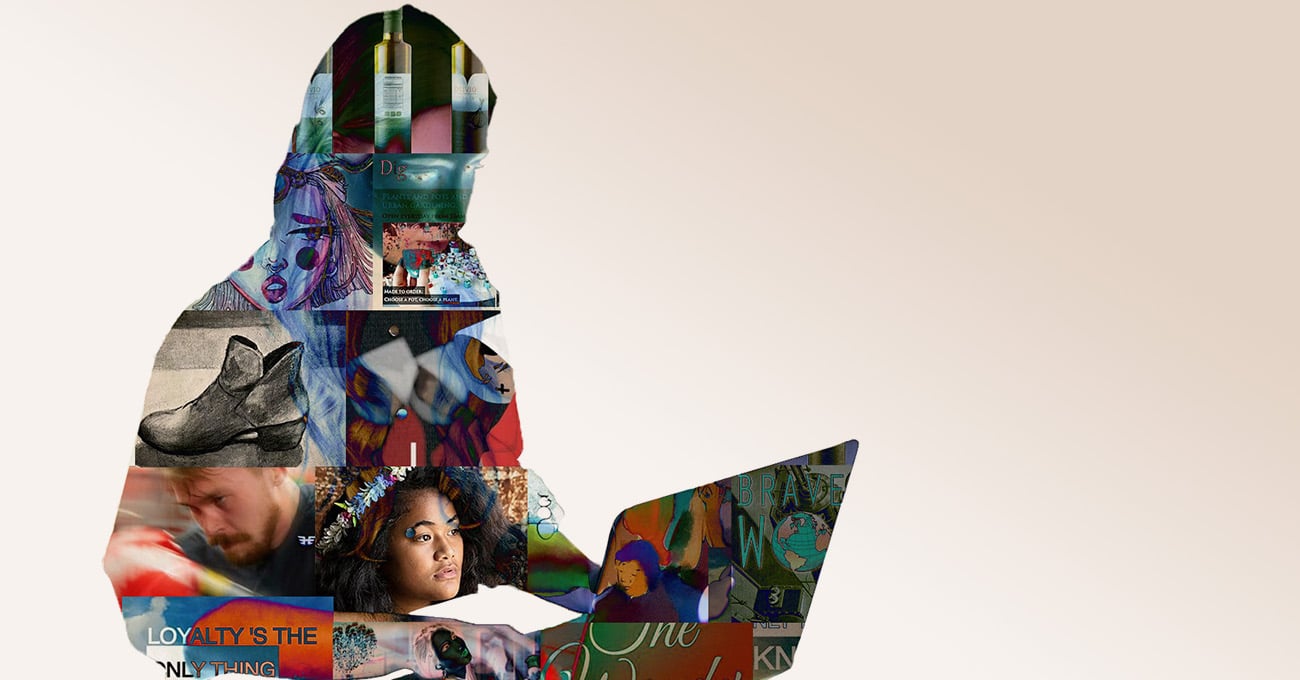
DEG 460: BFA Portfolio - 3 Credits
In this class, you will finalize your portfolio, business materials, and resume, in preparation for pursuing or advancing your design career. Working with your instructor, you will hone your BFA-level projects into a persuasive presentation of final work. The course structure includes the opportunity to enhance your portfolio as well as demonstrate your ability to effectively communicate the depth of your creative and technical skills, critical thinking and problem-solving abilities, work ethic, and passion for developing impactful and compelling professional work.

ELE 405: BFA Elective - 3 Credits
Choose a free elective from a wide range of courses.
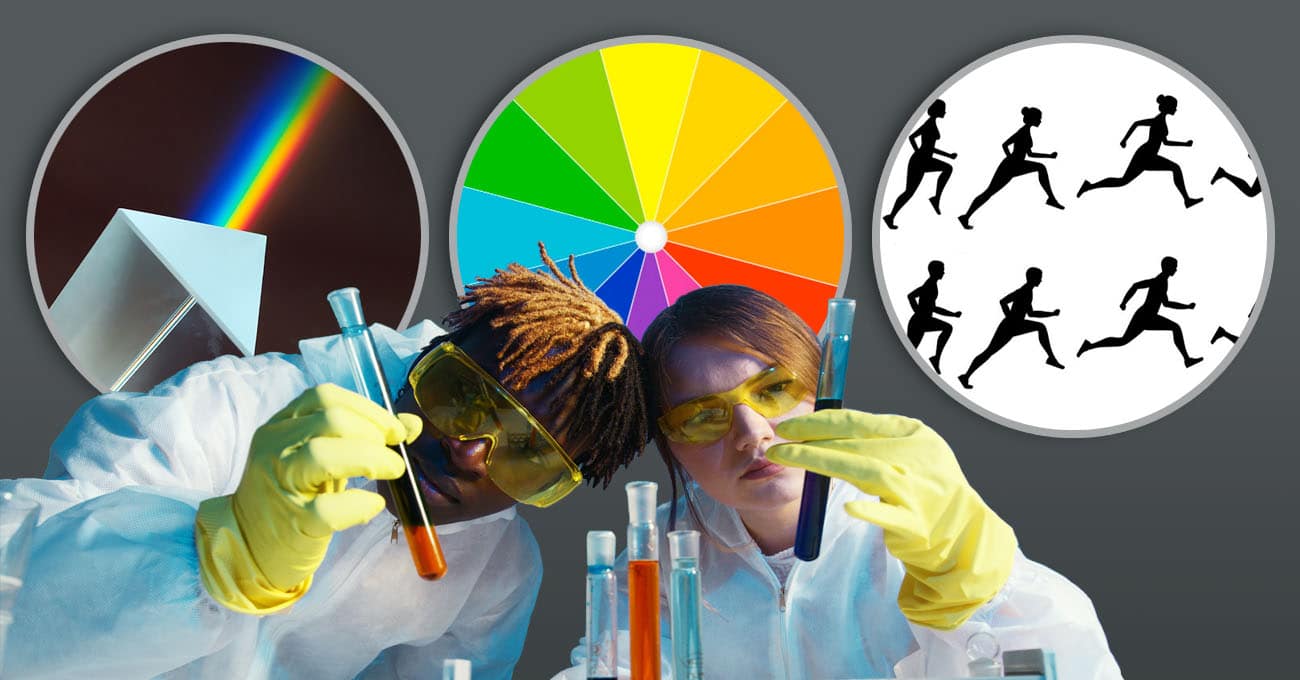
GEN 410: Science of Light, Color & Motion - 3 Credits
Any creative professional—artist, designer, or photographer—creates artwork, images, or animations in a natural world that is governed by the laws of physics. In this introductory science class, students will explore and apply scientific principles that are fundamental to visual perception. Students will learn the scientific basis of key concepts in light, color, and motion, explore research methods to discover how they work, and express this scientific knowledge in their creative work. Students will graduate the course with a solid understanding of how scientific theories, research, and experimental methodology are applied, building a foundation for future learning.
Students must complete 54 credits of Art/Design coursework and 18 credits of General Education. (DES = Design, PHO = Photography, WEB = Web, DIG = Digital Media, ILL = Illustration, DEG = Degree, FLM = Filmmaking, GEN = General Education)
* Elective course requirement may be fulfilled by any lower level 3-credit course, subject to availability and prerequisites.
Program Outcomes
By completing the program, Bachelor's Degree in Digital Photography students develop the following competencies:
Photography
Demonstrate effective and efficient use of a digital camera to create photographs with careful consideration of lighting, color, exposure, composition, and point of view. Effectively conceptualize and post-process (cull, edit/enhance, and retouching), and manage files for publication, exhibition, and commercial distribution, explore multiple image making techniques, and produce compelling, innovative, and professional images.
Lighting
Plan, stage, and execute photo shoots by adapting for a variety of settings and lighting situations (studio and on-location), in fulfillment of project goals.
Art/Design Principles
Employ and present the ability to create quality work by exploring and experimenting with the use of color, visual hierarchy/organization, concept development, composition, and other art/design principles.
Technology and Image Enhancement
Apply and demonstrate technically proficient retouching, careful consideration of contrast, cropping, exposure, and color correction techniques to improve or enhance photographic images to a professional level utilizing software including Adobe Lightroom and Photoshop, as well as other industry and web-based technologies.
Research, History, Criticism
Analyze, evaluate, and synthesize historical photographic/artistic concepts and styles, effectively communicate and defend aesthetic ideas based upon research, critically evaluate the work of multiple artists and photographers, consider the influence of photography on art and culture and consider research as well as context when producing your innovative work.
Portfolio
Conceive, produce, and present a cohesive body of work by synthesizing technical expertise, art/design principles, visual storytelling, and employing critical thinking and creative problem solving, in response to constructive feedback and critiques. Portfolio pieces display professional design aesthetic and concepts aligned with the student’s career and creative goals.
Critical Thinking, Communication, and Writing
Employ critical thinking and information literacy to generate, support, evaluate, and convey ideas through writing and oral communication for academic or professional contexts while considering divergent perspectives, cultural framing, historical context, research, and ethical concerns.
Professional Practice and Readiness
Construct and present a professional perspective by exploring the impact of culture and organizational behavior, practice timely production of well-conceived work, cultivate an elevated attention to detail, fulfill creative briefs, accept constructive feedback, demonstrate adaptability, and clearly communicate ideas.
About Sessions College
Sessions College has been inspiring creative professionals for 25 years. Accredited since 2001, we have a unique and proven approach to online education.
![]()
Accredited by Distance Education Accrediting Commission since 2001
![]()
Recognized as top design school by GDUSA
![]()
Winner of four USDLA awards for distance education
Bachelor's Degree in Photography – Student Experience
The Sessions College BFA in Digital Photography program inspires students to advance their creative careers by developing work for a global audience that is aligned with their future career goals.

Build a Foundation in Relevant Skills.
During the first two years of the program, you’ll establish a strong foundation in the technical, design, and critical thinking skills required by employers in creative industries. No textbooks required; you will learn by applying current art, design, photography, and software skills to a wide range of projects.
Customize Your Creative Path.
Our BFA is focused on helping you achieve your creative ambitions. In year three, working closely with our faculty, you’ll develop a customized educational plan to help you craft a portfolio of work to achieve your personal or professional goals. Adapt your classes by working on projects that inspire you and advance your career.


Focus on Research and Presentation.
Upper level courses provide a highly structured context for students to deepen their research, photography, and presentation skills. Mentored by experienced faculty, you will delve deeper into your projects, and develop the communication skills to ace your client interviews.
Experience Real-World Applications.
Study professional practices and gain invaluable work experience with a real client or employer, as part of your program. Discover how to market and monetize your work in interactive media and accounting classes.
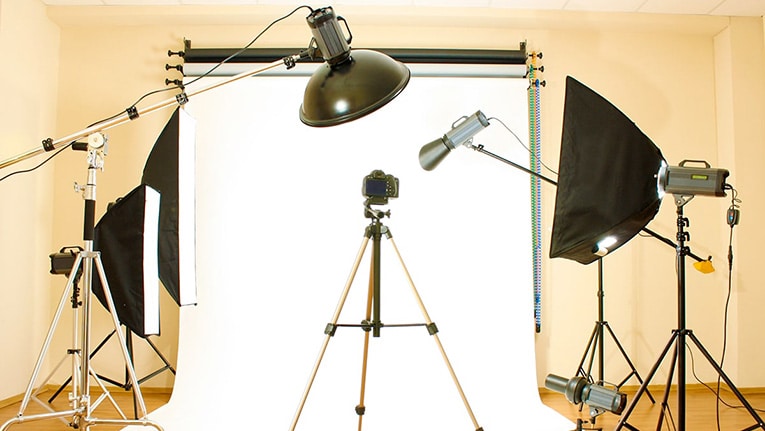

Be Industry Ready.
Employers are looking for problem solvers and adaptable professionals. Throughout the program, you’ll access industry-relevant opportunities to develop and advance your proficiency in critical thinking, problem solving, and communication.
Build a Professional Portfolio.
The program is relentlessly focused on helping you generate compelling creative work. Your final BFA portfolio and exhibition will speak for itself, helping you express your passions and talents in pursuit of your desired career path.
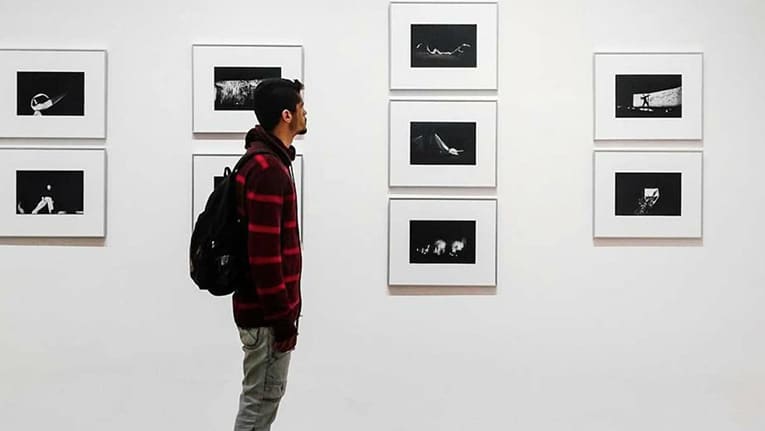
Student Work
Student Work

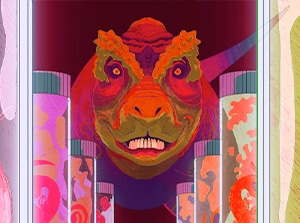
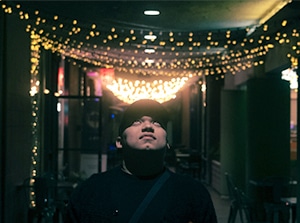
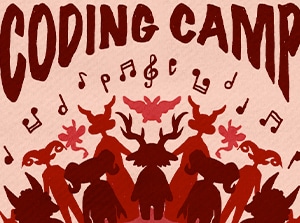

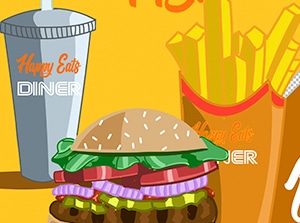

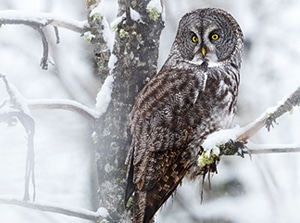
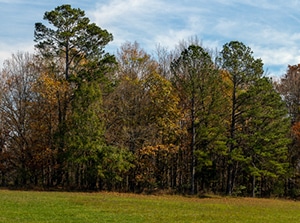
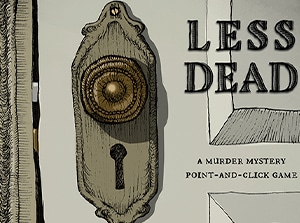
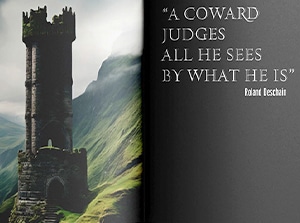

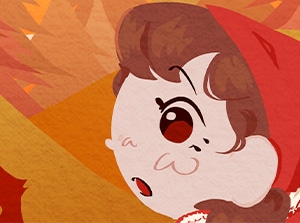

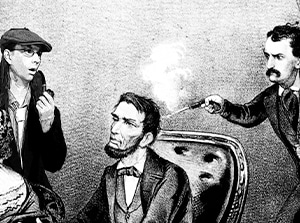
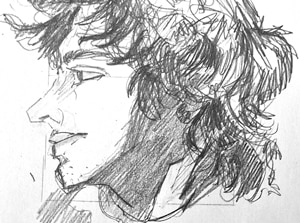



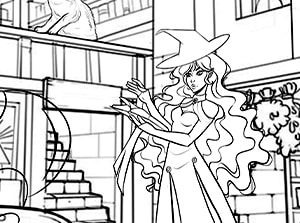
BFA Faculty
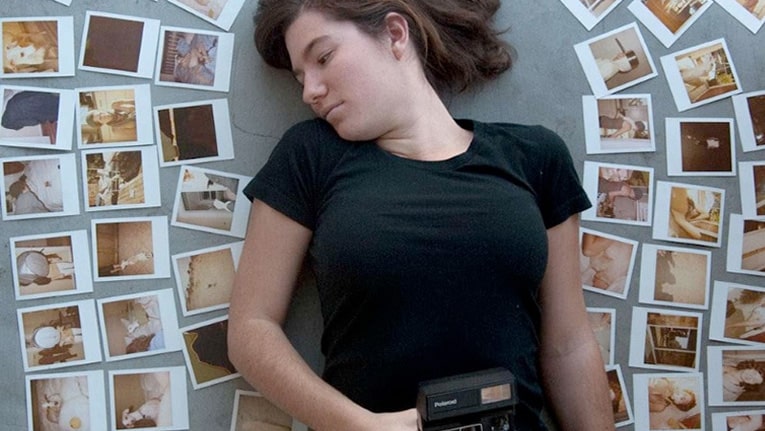
Felicia Kieselhorst, Department Head of Digital Photography
Felicia Kieselhorst is freelance photographer with her own business based in Oakland, CA. Felicia, known as Flee to most, specializes in wedding and product photography, and works in digital and film photography, using primarily Nikon, Hasselblad, and an array of toy cameras. Felicia earned her MFA in Photography at the Academy of Art University in San Francisco. The California native can often be found hanging out with her hairless pup Qispi, hiking, gardening, kayaking, or just sipping on a cup of tea.
Full bio
Melanie Fiander, BFA Photography Faculty
Melanie Fiander is a professional photographer and passionate educator focused on student success. She currently runs her wedding and event company from the island of Bermuda. Her work has been featured in Destination Weddings & Honeymoons Abroad, New York Weddings, PDN, The Vendor Report, Scotland Wedding, Tie the Knot Scotland, Ländle Wedding's "Seasons of Yes", Whimsically Wed, Bermuda Weddings and Honeymoons, Bermudian Weddings, How They Asked by The Knot, The Gray Collective, Wedding Wire, United With Love, National Geographic, It Started With Yes, Glittery Bride, 100 Layer Cake, Lets Bee Together, The Newport Bride, and Wedding Chicks.
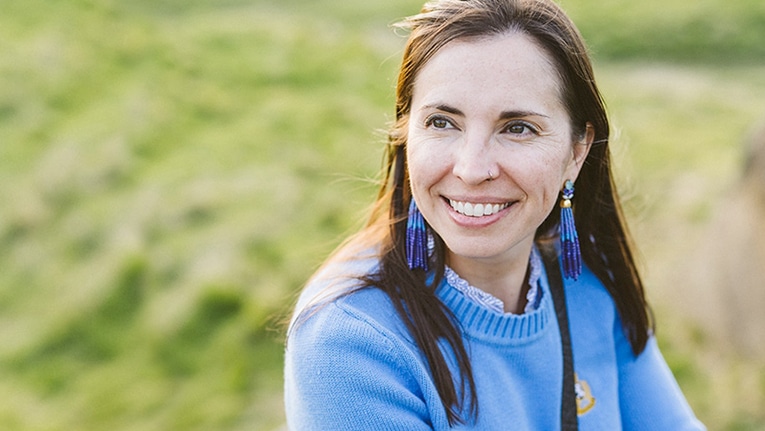
BFA Program At a Glance
Earn a BFA
The #1 credential for creatives.
100% Online
Flexible program designed for adult learners.
Under 4 years
Graduate in less than 4 years.
1to1 Faculty Feedback
Learn from creative professionals.
Study At Your Own Pace
Full and part-time schedules available.
$300/Credit Tuition
Recognized for affordability.

Career Outlook for Photographers
Photographers produce creative work for a myriad of clients including capturing images (digital and video) for commercial, industrial, news, and scientific uses, and projects for print, web, and a variety of media including television, film, and live streaming. Photographers need to demonstrate technical expertise, artistic ability, business skills, computer skills, customer-service skills, detail oriented, and interpersonal skills.
Exciting Job Opportunities
Graduates could be employed as an Aerial, Commercial, Industrial, Drone, Fine Arts, News, Portrait, and Scientific Photographer, or Video Editor, Content Producer, Art Manager, and Videographer.
Median Annual Wage and Income Potential
According to the Federal Bureau of Labor Statistics the median annual wage* for photographers was $40,760.
In May 2023, the median hourly wages for photographers in these top industries they work within:
| Media and communication equipment workers | $25.89 |
| Total, all occupations | $23.11 |
| Photographers | $19.60 |
*per May 2023 reporting
In May 2023, the median annual wages for camera operators, television, video, and film in these top industries they work within:
| Motion picture and video industries | $75,800 |
| Government | $58,120 |
| Professional, scientific, and technical services | $56,010 |
In May 2023, the median annual wages for film and video editors in these top industries they work within:
| Motion picture and video industries | $75,560 |
| Professional, scientific, and technical services | $59,980 |
Largest Areas of Employment
Largest employment opportunities for photographers (by percentage) were as follows:
| Self-employed workers | 69% |
| Photographic services | 16% |
Largest employment opportunities for camera operators, television, video, and film were:
| Self-employed workers | 33% |
| Motion picture and video industries | 27% |
| Professional, scientific, and technical services | 10% |
Largest employment opportunities for film and video editors were:
| Motion picture and video industries | 37% |
| Self-employed workers | 34% |
| Professional, scientific, and technical services | 10% |
Job Projections and Employment Trends
Employment opportunities for photographers are projected to grow 4 percent from 2022 to 2032.
There are about 13,900 openings projected for photographers each year, on average, over the decade.
Employment opportunities for film and video editors and camera operator jobs are projected to grow 7 percent from 2022 to 2032.
There are about 8,200 openings projected for film and video editors and camera operators each year, on average, over the decade.
Based on Federal Bureau of Labor Statistics and Indeed Job Outlook data.
Learn More
Based on Federal Bureau of Labor Statistics and Indeed Job Outlook data.
To learn more about this field, visit: American Society of Media Photographers. For more information about testing and obtaining certification to operate commercial drones or unmanned aerial systems (UASs), visit Federal Aviation Administration (FAA). For more information about university photographers, visit University Photographers’ Association of America.
Truly Affordable Education
Our tuition is:
50% lower than the average annual cost of tuition at 4-year colleges in the United States.
Significantly more affordable than other online design / digital media colleges.
So affordable that 100% of tuition costs may be covered for eligible students.* Find out today if you qualify.
*Federal student aid and military education benefits available for eligible students.

Frequently Asked Questions
Our online application process makes getting started easy, fast, and convenient.
What is the difference between a BFA and a BA?
The Bachelor of Fine Arts (BFA) degree is generally considered to be the most prestigious, professionally oriented bachelor's degree in the visual arts.
- In a Bachelor of Fine Arts (BFA) degree program, you are generally required to complete at least 65% of courses in your art/design major subject, and no more than 35% in general education. In the Sessions College BFA, 75% of the coursework is focused on your art/design studies.
- In a Bachelor of Arts (BA) program, you are generally required to complete up to 50% of courses in general education, with a lower percentage in your art/design major. The focus of a BA is to provide a well-rounded education.
For more information on the difference between a BA and a BFA, view this GDUSA article about benefits of getting a BFA.
What makes the Sessions College BFA in in Digital Photography program distinctive?
Simply, the program is the most affordable, accessible, and portfolio-focused online Bachelor's Degree in Digital Photography available.
- Affordable. Our $510/credit tuition is up to 200% lower than competitor programs, so you can graduate with a minimum of loan debt.
- Accessible. Designed for busy adults with weekly deadlines but no set login times, you can complete the program from anywhere in the world, studying full-time or part-time. More than 50% of degree students complete programs while employed.
- Portfolio-Focused. Build a solid foundation in art and photography, then customize your advanced level classes around your portfolio goals. Faculty mentoring will help you hone your final BFA portfolio to achieve YOUR creative career goals.
How Long Does the Program Take to Complete?
Most Bachelor’s Degree programs take four years to complete. You can complete our BFA in Digital Photography program in 10 semesters or 3.3 years—and sooner if you have credit transfer. With our intensive program, you can graduate faster and get started sooner with your career goals.
Is the Tuition Affordable?
Truly Affordable Tuition. We are committed to making the highest-quality design and digital media education available at the lowest cost.
Our truly affordable tuition is:
| Bachelor of Fine Arts (BFA) Program - Fall 2024 Tuition |
|---|
| $300 per credit |
| $3,600 per semester |
| $7,200 per academic year |
| $36,000 total program tuition |
Per-credit tuition is the same full-time and part-time students. Federal financial aid available for eligible students. Ask about our $500-$3,000 scholarships for exemplary applicants.
A $200 registration fee is required to process your enrollment in the program. Registration fees are nonrefundable after 5 days from the scheduled beginning of program orientation. See Degree Program Admissions.
What software and/or supplies do I need?
To take this program, you’ll need the following:
- Mac or Windows computer with an Internet connection.
- Access to a standalone digital camera with manual control over ISO, Aperture, Shutter Speed, and White Balance, that allows for shooting in RAW format.
- A digital video camera and ability to connect it to a computer to capture footage.
- Adobe Photoshop, Lightroom, and Premiere Creative Cloud software.
- Your computer must meet software manufacturer requirements.
- Basic drawing supplies including pencils, charcoal, and sketch paper.
- Webcam, headphones or speaker, VPN connection, and microphone connected to the computer for live proctored exams.
There are no textbook or course material costs to participate in this online program. Student discount on Adobe Creative Cloud software is available to enrolled students.
Is Sessions College Accredited?
Yes. Since 2001, Sessions College has been accredited by the Distance Education Accrediting Commission (DEAC). The Distance Education Accrediting Commission (DEAC) is a private, non-profit organization founded in 1926 that operates as an institutional accreditor of distance education institutions. The Distance Education Accrediting Commission is listed by the U.S. Department of Education as a recognized accrediting agency and is recognized by the Council for Higher Education Accreditation (CHEA).
What is the Admissions Process?
To enter the program you are expected to have earned a high school diploma, GED, or state-approved home school equivalent. Any students under 18 years of age will also need to provide the signed permission of a parent or guardian.
We have a convenient and student-friendly online application process. Simply complete our program application form and provide transcripts, an application essay, and 5-10 samples or art/design work or alternative written assignment, and a $75 application fee. See our complete application guide and credit transfer policy.
Applications are reviewed by our Acceptance Committee and generally returned within a business week.
You can begin your creative journey by completing our online application today. There is no charge until you submit your application materials and no obligation to enroll.
What Else Do I Need to Do?
All candidates are expected to complete a 15-minute phone or Zoom interview with one of our Admissions advisors. These talented, friendly professionals will explain the program options, answer your questions, and get you started with your financial aid process, if you are eligible.
Get Started Today
Take the first step on a rewarding creative journey towards earning a BFA in Digital Photography.
By submitting this form, you consent to an Admissions Advisor contacting you about our educational programs via email, phone, or SMS text. Message & data rates may apply. You can opt out or unsubscribe at any time. Privacy Policy.





















